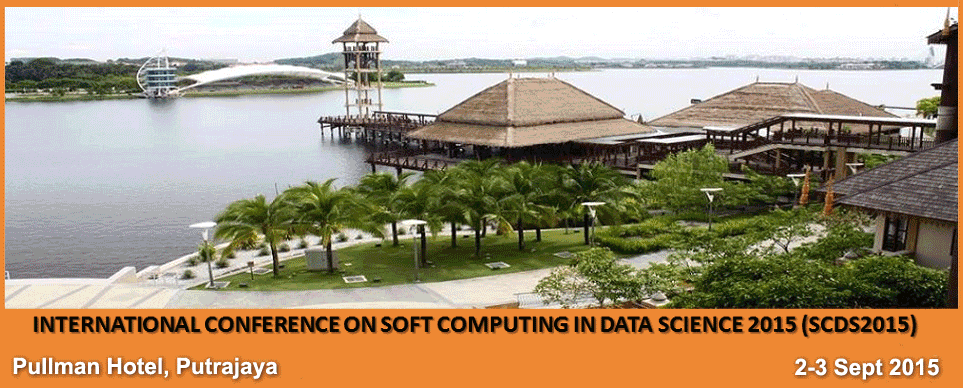Keynote Speakers
Keynote 1: Soft Computing Techniques for the Modeling of Social Networks
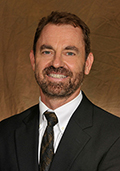
|
Professor Dr. Michael W.Berry Department Honors Coordinator CompSci/CompEng Advising
|
Dr. Michael W. Berry holds the title of Full Professor in the Department of Electrical Engineering and Computer Science and Director of the Center for Intelligent Systems and Machine Learning (CISML) in the College of Engineering. He received the BS degree in Mathematics from the University of Georgia in 1981 and the MS degree in Applied Mathematics from North Carolina State University in 1983. In 1990, he received the PhD degree in Computer Science from the University of Illinois at Urbana-Champaign. Dr. Berry was the recipient of the Moses E. and Mayme Brooks Distinguished Professor Award (UTK College of Engineering) in 2009, the Allen Hoshall Engineering Faculty Award (UTK College of Engineering) in 2010, the L.R. Hesler Award for Excellence in Teaching in Service (UTK Chancellor’s Honors) in 2011, and the Charles Edward Ferris Faculty Award (UTK College of Engineering) in 2011. His research interests include information retrieval, text/data mining, computational science, bioinformatics, and scientific computing.
Keynote 2: Better Security And Privacy In Mobile Networks With Machine Learning Techniques
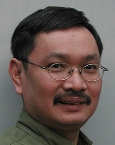
|
Professor Dr. Do van Thanh Professor |
Prof. Dr. Do Van Thanh obtained his MSc in Electronic and Computer Sciences from the Norwegian University of Science and Technology and his PhD in Informatics from the University of Oslo. In 1991 he joined Ericsson R&D Department in Oslo after 7 years of R&D at Norsk Data, a minicomputer manufacturer in Oslo. In 2000 he joined Telenor R&D and has been working with a variety fields such as distributed computing, mobile service personalisation, mobile commerce, privacy and security. He is now at the Telenor Research and in charge of Identity Management and SIM related activities. He has been project leader of multiple EU research projects and member of multiple conference technical committees. He is also professor at the Department of Telematics at the Norwegian University of Science and Technology. He is author of over 150 publications at international conferences and journals. He is also inventor of 22 patents.
Keynote 3: Hacking EEG Data of Epileptic Seizure
|
|
Professor Dr. Tahir Ahmad Faculty of Science
|
He received his PhD from the Department of Electrical and Electronic Engineering, Sheffield Hallam University, UK with his thesis "Mathematical and Fuzzy Modeling of interconnections in Integrated Circuits" in 1998. He has conducted research in the field of fuzzy theory and applications of mathematical modeling related to industrial, medical, environmental and others. He is the former chairman of the Mathematics Program at Ibnu Sina Institute, Faculty of Science, UTM. He has been involved with the assessment of FRGS grant, ScienceFund and others. He also has received numerous research grants including FRGS, GUP, IRPA and SAGA Fund. Professor Dr. Tahir Ahmad is active in several academic and professional associations, including PERSAMA (Mathematics Association of Malaysia) and Malaysian Society of Epilepsy. He has written and published many papers on mathematical modeling and fuzzy theory and applications in local and international journals. His article entitled "A Simplified Technique for Solving Novel Fully Fuzzy Linear Programming Problems" in the Journal of Theory and Applications Optomization in 2012 was communicated by Lotfi Zadeh. He also contributed a chapter in a new book published by the University of Malaya (2013) "Etnosains dan Etnomatematik Alam Melayu ". In June 2008, Professor Dr. Tahir was an invited scientist at the RIKEN Brain Science Institute, Japan. Besides teaching pure mathematics subjects, he is also the editor of various journals and books. Contribution and involvement in the field of fuzzy theory and mathematical modeling has given him many awards such as the Gold Medal Award at INATEX 2001, the Gold Medal Award in Science and Technology Expo 2001, Silver Medal Award in the 30th International Exhibition of Inventions New Techniques and Products, Geneva, Switzerland, 2002 and "Most Promising Research" at BioMed 2002. He has succeeded to obtain copyright approval for "Fuzzy Topographic Topological Mapping" (FTTM) in 2006, a patent for "An Inverse Model of a Contactor Column" in 2012, and the copyright for "Inverse Ability Test in Epilepsy (i-Atie)" in 2013. In terms of supervisory experience, he has successfully supervised 13 PhD students to date, and currently he has 15 PhD students who are all under the three of research projects include Fuzzy Topographic Topological Mapping (FTTM), Fuzzy Autocatalytic Set (FACS) and Fuzzy State Space Model (FSSM).
Keynote 4: Internet of Things and Big Data – The Perfect Marriage
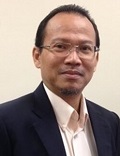
|
Dr. Mazlan Abbas, Ph.D. CEO
|
Dr. Mazlan is ranked No. 20th Thought Leader in IOT by 2014 Onalytics Report – “The Internet of Things - Top 100 Thought Leaders”. He has 30 years of experience and accomplishments in a senior management capacity primarily accountable for R&D, Product Development Innovation & Solutions, Technology Management, Network Operations and Academia. Before joining REDtone, he spent 8 years in MIMOS Berhad as the Senior Director Wireless Communications Cluster where is responsible to lead, strategise and manage the Applied R&D activities in Wireless Communications technology. He also spent 13 years in CELCOM (mobile operator), handling many senior management positions (including R&D, Billing Operations, Technology & Technical Management, Network Administration & Management, Mobile Data, Integrated Business Solutions and Mobility Solutions).Rich experience and knowledge with IT and Telecommunications operation and transformation. Prior to Celcom, he spent 10 years as an Assoc. Professor at Universiti Teknologi Malaysia. Dr. Mazlan is a frequent speaker in many major & established IT and telco conferences locally and globally. He has served as MOSTI's Technofund and Science Fund (ICT Cluster) Technical & Commercial Evaluation Committee, Industry Advisory Panel (IAP) for several local universities. Currently he is an Adjunct Professor with UTHM.
Keynote 5: Trends in Signal Feature Extraction
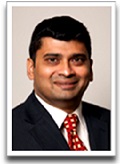
|
Prof. Sridhar (Sri) Krishnan Professor and Canada Research Chair in Biomedical Signal Analysis,
|
Professor Dr. Sridhar (Sri) Krishnan received the B.E. degree in Electronics and Communication Engineering from the College of Engineering, Guindy, Anna University, Chennai, India, in 1993, and the M.Sc. and Ph.D. degrees (with student fellowship from Alberta Heritage Foundation for Medical Research) in Electrical and Computer Engineering from The University of Calgary, Calgary, Alberta, Canada, in 1996 and 1999 respectively. Sri Krishnan joined Ryerson University in July 1999, and is currently a Professor in the Department of Electrical and Computer Engineering. Since July 2011, he is an Associate Dean (Research) for the Faculty of Engineering and Architectural Science. Since January 2002 Sri Krishnan held various administrative leadership positions in the Department of Electrical and Computer Engineering and the Faculty of Engineering and Architectural Science. In 2010-2011, Sri Krishnan held Visiting Appointments in University of Rennes 1 (France), Grenoble Institute of Technology (France) and Indian Institute of Technology (Madras). Sri Krishnan is a registered Professional Engineer in the Province of Ontario, and is a Senior Member of IEEE (EMBS, SP, and CAS societies) and a Member of IET. He is the Founding Chair of IEEE Signal Processing Society, Toronto Section and Region 7 (Canada). Sri Krishnan holds the Canada Research Chair position in Biomedical Signal Analysis. His research interests include adaptive signal representations and analysis and their applications in biomedicine, multimedia (audio), and biometrics. His academic interests include curriculum design, experiential learning, and innovation.
